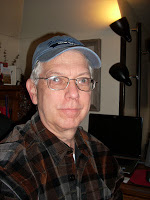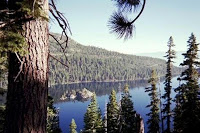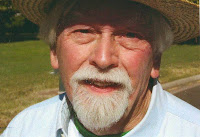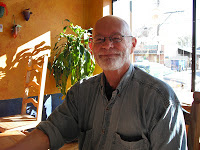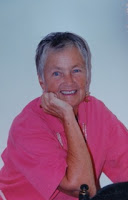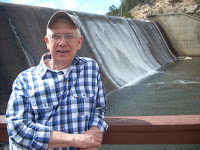Note: I write this letter to a 19-year-old me not because I am upset over any decisions I made or over the life I lived subsequent to making them. My life has been fine; still there were a few crises I could have navigated differently. I write this letter from a point of view I could never have imagined, to a person who did not enough maturity of thought, feeling, or experience to have made other choices. In writing this letter, I am only thinking about a what-if that did not occur. I know that at 19 I may not have been able to imagine any of the things I now can at age 66! But, here goes anyway.
Spring, 1967
Dear Phillip,
I heard through your sisters about your recent breakup with your girlfriend. They seem upset about the severing of a growing tie, but I’m not quite sure what all informs their feelings. I do know they really like Myrna for her lively spirit and generosity. Yes, I like her too and am sorry for your loss and whatever feelings you are having right now. I wish I knew for sure what they are! I imagine they are quite mixed.
Breakups are difficult for all the feelings, but they are also opportunities of evaluation of one’s needs and interests. I remember your complaint about other ministerial students in your dorm who list all their requirements for their prospective wives: their looks, personality, musicianship, ability to teach, organize, cook well, get along, and so forth. I applaud your perspective that these lists are both hopeless and actually quite demeaning. I believe growing up with your sisters trained you well to look at women for who they are, not for what they will provide you. I was happy for you when you attached yourself to a young woman who was so independent and lively. I applaud.
One of your sisters told me that Myrna initiated the breakup out of her frustration that the two of you have difficulty talking with one another. I’m sure this reasoning frustrates you for in general you have no difficulty talking. Surely you are meeting with a frustration men commonly have in learning to relate to the women in their lives. We guys like to talk about our ideas, our work, and our activities; we tend to find it difficult to talk about our feelings in the ways many women desire to talk. That’s a plain old problem for most relationships between men and women.
I want to recommend something to you. Write down your own thoughts. Try to make sense of them from all your friendships and flirtations since junior high. List all the people you think might make a good partner for you or you might imagine yourself living with in adulthood—married or not. Erase any assumptions you may have that are similar to your dorm mates’. (You may be surprised to find that you are not all that different from them.) Write down your initial thoughts, those you had when Myrna left you alone in the chapel sitting there on the piano bench. Read and edit your thoughts. Evaluate them. This breakup can help you have freedom in your choices henceforth; it can help you understand yourself and your needs.
I love you, Phillip. I love your music, your artwork, your kindness towards others, your religious motivations, and your imagination. I love how you have learned to work, study, and reason. Please don’t shortchange yourself emotionally, academically, or vocationally. There are many, many ways to be a minister. There are many, many honorable kinds of work. There are many, many opportunities awaiting a person just like you. They are there for you. I hope for you more experience of the world before you make such an important decision about any kind of life partnership.
You will be tempted to run away from or to run back into whatever security Myrna represents for you. Please think deeply and honestly about these matters. Give yourself more time to mature. (I know that sounds awful.) Think about exactly what you want to do with your talents. Your life is right now wide open and your abilities can serve as doorways to many opportunities. Don’t shut too many doors too quickly. Good luck. God bless.
Love,
(signed) Your Self Yet to Be
About the Author
Phillip Hoyle lives in Denver and spends his time writing, painting, giving massages, and socializing. His massage practice funds his other activities that keep him busy with groups of writers and artists, and folk with pains. Following thirty-two years in church work, he now focuses on creating beauty and ministering to the clients in his practice. He volunteers at The Center leading “Telling Your Story.
He also blogs at artandmorebyphilhoyle.blogspot.com
